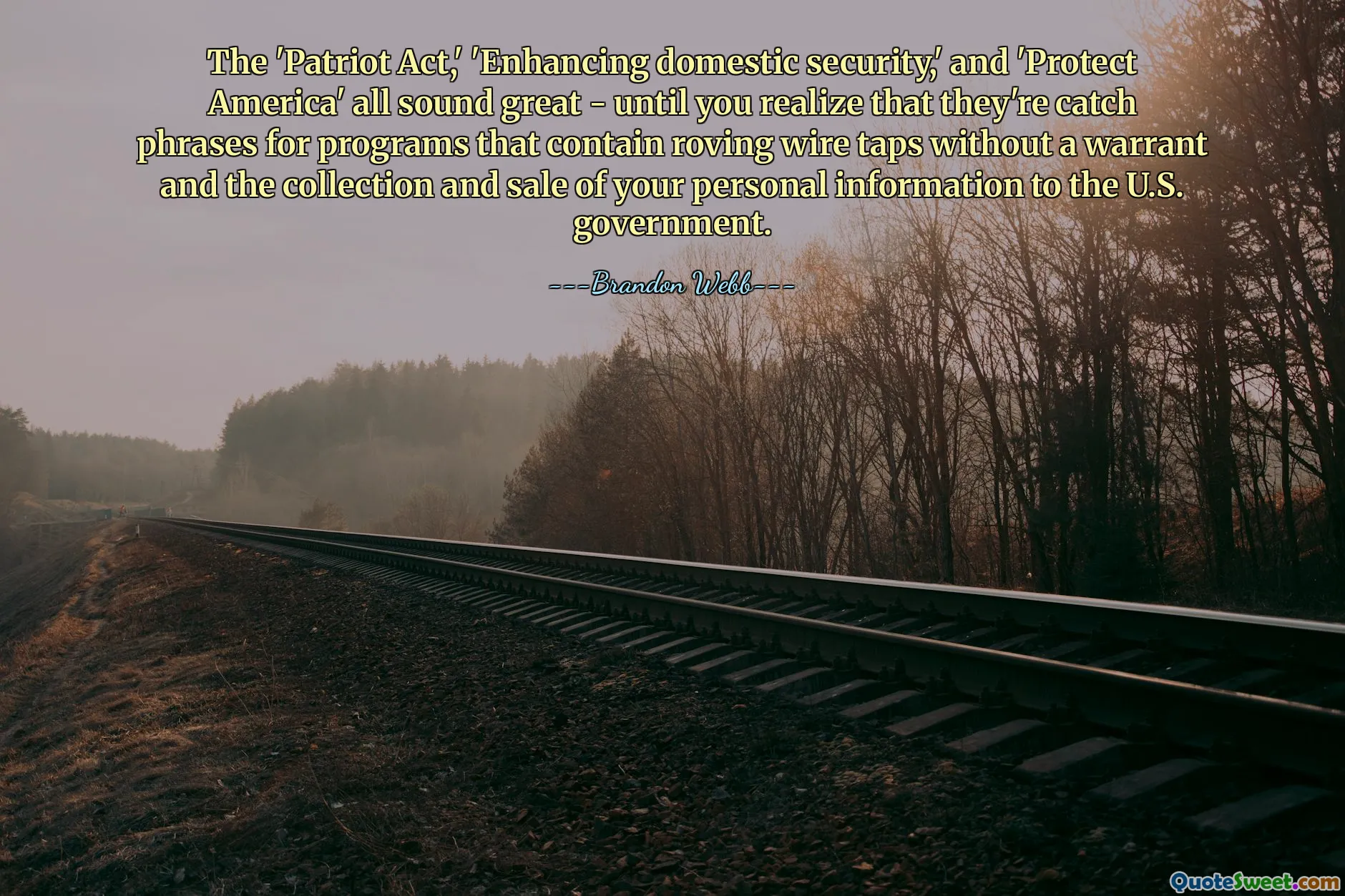
The 'Patriot Act,' 'Enhancing domestic security,' and 'Protect America' all sound great - until you realize that they're catch phrases for programs that contain roving wire taps without a warrant and the collection and sale of your personal information to the U.S. government.
The quote brings to light a crucial aspect of government policies often presented to the public in a positive light under the guise of patriotism and national security. While terms like 'Enhancing domestic security' and 'Protect America' inherently sound beneficial and protective, the underlying implications reveal a potential compromise of personal freedoms. Roving wiretaps without warrants, for instance, bypass traditional judicial oversight, raising serious privacy concerns and the risk of abuse of power. Similarly, the collection and sale of individuals' personal information to the government erodes civil liberties and can lead to surveillance states where citizens feel constantly watched, leading to self-censorship and fear. This quote exemplifies the importance of transparency and the need for vigilance against policies that may sound advantageous but carry invasive implications. It encourages critical thinking about the real consequences of security measures and emphasizes that safeguards for liberty can sometimes be compromised covertly. Reflecting on this, one must balance the desire for security with the fundamental rights that underpin a free society. The intrusive practices described threaten democratic principles and underscore the importance of holding governments accountable for their surveillance and data collection practices. Citizens should remain informed and vigilant, advocating for policies that protect both security and individual privacy. Ultimately, the quote serves as a reminder that language alone is not enough; the true intention and impact of legislation must be scrutinized and understood. Without such oversight, the very freedoms that define us might be unintentionally sacrificed in the name of security.











